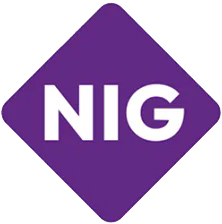We compare quotes from leading insurers
Protect Your Offsure Energy Business with Specialist Insurance Coverage
Offshore Energy Insurance
Comprehensive Protection for Your Offshore Operations
Specialist insurance coverage for offshore oil, gas, and renewable energy operations. Protecting your platforms, vessels, equipment, and personnel with tailored policies designed for the unique risks of offshore energy.
What is Offshore Energy Insurance?
Offshore energy insurance provides comprehensive protection for companies operating in the challenging marine environment of oil, gas, and renewable energy extraction. This specialized coverage addresses the unique risks associated with offshore platforms, drilling operations, subsea equipment, and the complex logistics of energy production at sea.
- Platform & Structure Coverage - Protection for offshore platforms, drilling rigs, production facilities, and associated infrastructure against physical damage, weather events, and operational hazards.
- Equipment & Machinery - Coverage for specialized offshore equipment including drilling machinery, production equipment, subsea installations, and support vessels.
- Business Interruption - Financial protection against loss of production and revenue due to covered incidents, including additional costs of working and delay in start-up.
- Environmental Liability - Comprehensive coverage for pollution incidents, cleanup costs, and environmental damage claims specific to offshore operations.
Comprehensive Offshore Energy Insurance Coverage
Physical Damage Coverage
- Offshore Platforms: Fixed and floating production platforms, drilling platforms, accommodation platforms
- Drilling Equipment: Drilling rigs, blowout preventers, drilling strings, casing, and completion equipment
- Production Equipment: Wellheads, manifolds, separators, compressors, and processing equipment
- Subsea Infrastructure: Pipelines, umbilicals, subsea trees, and control systems
- Support Vessels: Supply boats, anchor handling vessels, diving support vessels
- Onshore Facilities: Terminals, storage facilities, and processing plants connected to offshore operations
Liability Protection
- Third Party Liability: Claims from other operators, fishing vessels, and maritime traffic
- Employers Liability: Protection for offshore workers and contractors
- Professional Indemnity: Coverage for design, engineering, and consultancy services
- Product Liability: Protection against claims related to energy products and services
- Cyber Liability: Coverage for digital systems controlling offshore operations
Environmental & Pollution Coverage
- Pollution Liability: Cleanup costs and third-party claims from oil spills and contamination
- Environmental Damage: Natural resource damage and habitat restoration costs
- Regulatory Fines: Coverage for environmental penalties and regulatory sanctions
- Emergency Response: Immediate response costs for containment and cleanup
Business Interruption & Additional Costs
- Loss of Production: Revenue protection during operational shutdowns
- Extra Expenses: Additional costs to maintain operations or minimize losses
- Delay in Start-up: Coverage for delayed commissioning of new facilities
- Increased Cost of Working: Additional expenses to resume normal operations
- Loss of Market: Protection against permanent loss of contracts or market share
Understanding Offshore Energy Risks
Offshore energy operations face unique challenges that require specialized insurance protection. Understanding these risks is crucial for adequate coverage.
Environmental Hazards
- Severe weather conditions and storms
- Hurricane and typhoon damage
- Wave and current damage to structures
- Corrosion from saltwater exposure
- Ice damage in Arctic operations
Operational Risks
- Blowouts and well control incidents
- Fire and explosion risks
- Equipment failure and breakdown
- Human error and operational mistakes
- Supply chain disruptions
Technical Challenges
- Complex subsea equipment failures
- Pipeline integrity issues
- Structural fatigue and metal failure
- Control system malfunctions
- Communication system failures
External Threats
- Vessel collisions and anchor damage
- Terrorism and security threats
- Piracy in certain regions
- Fishing vessel interference
- Military activities and conflicts
Benefits of Specialist Offshore Energy Insurance
- Expert Risk Assessment - Our specialists understand the complex risks of offshore operations and can provide tailored coverage that addresses your specific operational challenges and exposures.
- Comprehensive Protection - Single policy solutions covering physical damage, liability, environmental risks, and business interruption, eliminating gaps in coverage that could leave you exposed.
- Global Coverage - Protection for operations worldwide, including territorial waters, exclusive economic zones, and international waters, with coverage that follows your operations.
- Crisis Management - Access to specialized crisis management services, including emergency response coordination, public relations support, and technical expertise during incidents.
- Regulatory Compliance - Coverage designed to meet international maritime regulations, environmental standards, and industry-specific requirements across different jurisdictions.
- Financial Security - High coverage limits to protect against catastrophic losses, with flexible payment terms and coverage structures to match your operational cash flow.
How to Get Offshore Energy Insurance
Our streamlined process ensures you get the right coverage for your offshore operations quickly and efficiently.
- 1. Initial Consultation - Contact our offshore energy specialists to discuss your operations, coverage needs, and risk exposures. We'll conduct a preliminary assessment of your requirements.
- 2. Risk Assessment - Our experts will conduct a comprehensive risk assessment of your offshore operations, including site visits if required, to understand your unique exposures.
- 3. Coverage Design - We'll design a tailored insurance program that addresses your specific risks, operational requirements, and budget considerations.
- 4. Market Placement - Our team will approach specialist offshore energy insurers to secure competitive terms and comprehensive coverage for your operations.
- 5. Policy Implementation - Once coverage is secured, we'll implement your policy, provide documentation, and ensure all stakeholders understand the coverage terms.
- 6. Ongoing Support - We provide continuous support throughout the policy period, including claims assistance, risk management advice, and annual reviews.
Regulatory Compliance & Standards
Our offshore energy insurance policies are designed to meet the complex regulatory requirements of international maritime and energy operations.
- International Maritime Organization (IMO) - Coverage compliant with IMO conventions and regulations governing offshore installations and maritime safety.
- MARPOL Convention - Environmental coverage meeting MARPOL requirements for pollution prevention and response in marine environments.
- National Regulations - Compliance with national offshore safety and environmental regulations in your operating jurisdictions.
- Industry Standards - Coverage aligned with API, ISO, and other industry standards for offshore energy operations.

The team at Insure24 understood the unique risks of our offshore wind farm project. Their tailored approach and competitive pricing made them the clear choice for our insurance needs."
Project Manager, Renewable Energy DeveloperWhy Choose Insure24 for Offsure Energy Insurance?
- Specialist Knowledge - We understand the unique risks facing Offshore Energy operators
- Comprehensive Coverage - Multiple insurance products designed to work together
- Competitive Pricing - Tailored quotes based on your specific venue and operations
- Expert Support - Dedicated team available when you need us most
- Quick Claims - Fast response when incidents occur
- FCA Regulated - Authorized and regulated by the Financial Conduct Authority
Protect Your Offshore Energy Contractors Business with Specialist Insurance Coverage
Get Your Offsure Energy Insurance Quote Today
Don't leave your Offsure Energy exposed to unnecessary risks.
Our specialist team will assess your venue's unique needs and provide a comprehensive insurance solution that protects your business, your customers, and your livelihood.
Call us now: 0330 127 2333
Or get an instant online quote at insure24.co.uk
FREQUENTLY ASKED QUESTIONS
+-
What types of offshore energy operations are covered?
Our offshore energy insurance covers oil and gas exploration and production, offshore wind farms, wave and tidal energy projects, floating solar installations, and associated support operations including drilling, construction, and maintenance activities.
+-
How is coverage different from standard marine insurance?
Offshore energy insurance is specifically designed for the unique risks of energy operations at sea. Unlike standard marine insurance, it covers specialized equipment, environmental liabilities, business interruption specific to energy production, and the complex regulatory requirements of the energy sector.
+-
What geographic areas can be covered?
Coverage can be provided worldwide, including territorial waters, exclusive economic zones, and international waters. We can tailor coverage to specific regions such as the North Sea, Gulf of Mexico, offshore West Africa, Southeast Asia, or Arctic operations.
+-
Are renewable energy projects covered?
Yes, we provide comprehensive coverage for offshore renewable energy projects including wind farms, wave energy converters, tidal energy systems, and floating solar installations. Coverage includes construction, operational, and decommissioning phases.
+-
What environmental coverage is included?
Environmental coverage includes pollution liability, cleanup costs, natural resource damage, regulatory fines and penalties, emergency response costs, and third-party environmental claims. Coverage extends to both sudden and gradual pollution events.
+-
How are business interruption losses calculated?
Business interruption coverage is based on your actual loss of production revenue, additional expenses incurred, and increased costs of working. We consider your production capacity, commodity prices, and operational expenses to determine appropriate coverage limits.
+-
What happens during severe weather events?
Our policies provide coverage for weather-related damage including hurricanes, storms, and extreme sea conditions. Coverage includes physical damage to structures and equipment, business interruption during weather delays, and additional costs for weather protection measures.
+-
Are subsea operations covered?
Yes, we provide comprehensive coverage for subsea operations including pipelines, wellheads, manifolds, control systems, and ROV operations. Coverage includes installation, maintenance, and operational phases of subsea infrastructure.
+-
What support is available during a crisis?
Our crisis management services include 24/7 emergency response coordination, access to technical experts, public relations support, regulatory liaison, and claims management. We have established networks of specialists worldwide to provide immediate assistance.
+-
How are coverage limits determined?
Coverage limits are based on your asset values, production capacity, potential environmental exposure, and regulatory requirements. We conduct detailed valuations and risk assessments to ensure adequate coverage for your specific operations.
+-
Can coverage be adjusted for seasonal operations?
Yes, we can structure policies to accommodate seasonal operations, weather windows, and varying operational intensity. This includes adjusted premiums and coverage levels to match your operational calendar and risk exposure.
+-
What documentation is required for coverage?
Required documentation typically includes operational details, asset valuations, safety management systems, environmental impact assessments, regulatory permits, and historical loss information. Our team will guide you through the specific requirements.
+-
Are joint venture operations covered?
Yes, we can structure coverage for joint venture operations, including cross-liability protection, non-operator coverage, and coordination with other participants' insurance programs. Coverage can be tailored to your specific participation level and responsibilities.
+-
What cyber risks are covered for offshore operations?
Cyber coverage includes protection for control systems, SCADA networks, communication systems, and data breaches. Coverage extends to business interruption from cyber incidents, system restoration costs, and liability for cyber-related operational failures.
+-
How quickly can coverage be arranged?
For standard operations, coverage can typically be arranged within 2-4 weeks. For complex or high-value operations, the process may take 4-8 weeks to allow for detailed risk assessment and market placement. Emergency coverage can be arranged more quickly when needed.
+-
Are decommissioning activities covered?
Yes, we provide coverage for decommissioning activities including platform removal, well abandonment, environmental restoration, and associated liabilities. Coverage can be structured to meet regulatory requirements for decommissioning security.
+-
What happens if operations move to new locations?
Our policies can be structured to automatically cover new locations within defined geographic areas, or can be amended to add specific new locations. We provide flexibility to accommodate the dynamic nature of offshore energy operations.
+-
Are there exclusions I should be aware of?
Standard exclusions include war and terrorism (unless specifically covered), nuclear risks, gradual deterioration, and certain regulatory changes. We'll clearly explain all exclusions and can often provide additional coverage for specific excluded risks.
+-
How are claims handled for offshore incidents?
Our claims team includes offshore energy specialists who understand the technical and operational aspects of your business. We provide 24/7 claims reporting, rapid response for emergency situations, and coordinate with technical experts and emergency responders.
+-
Can coverage be coordinated with contractors' insurance?
Yes, we can coordinate coverage with your contractors' and subcontractors' insurance programs to eliminate gaps and avoid disputes. This includes primary and excess coverage arrangements, and cross-liability protection between parties.
+-
What risk management services are available?
We provide risk management services including safety audits, loss prevention advice, emergency response planning, regulatory compliance support, and training programs. These services help reduce your risk exposure and may qualify for premium discounts.
+-
Are there industry-specific policy forms?
Yes, we use industry-standard policy forms such as the Offshore Additional Perils (OAP) policy, Energy Package Policy (EPP), and other specialized forms designed specifically for offshore energy operations. These forms address the unique needs of the industry.
+-
How does coverage handle technological advances?
Our policies are designed to accommodate technological advances in offshore energy operations. Coverage can be extended to include new technologies, innovative equipment, and emerging operational methods as they are adopted in your operations.
+-
What about coverage for floating production systems?
We provide comprehensive coverage for floating production, storage, and offloading (FPSO) units, floating liquefied natural gas (FLNG) facilities, and other floating production systems. Coverage includes hull and machinery, operational equipment, and specialized risks associated with floating operations.
+-
Are there financing and payment options available?
Yes, we offer flexible payment terms including monthly, quarterly, and annual payment options. For large operations, we can arrange premium financing and payment schedules that align with your cash flow and project financing arrangements.
+-
What is the cost of offshore energy insurance?
Offshore energy insurance costs vary significantly based on factors including operation type, location, asset values, safety record, and coverage limits. Typical premiums range from 0.1% to 2% of insured values annually. Oil and gas operations generally cost more than renewable energy projects due to higher environmental risks.
+-
Do I need separate insurance for offshore wind farms?
Offshore wind farms require specialized insurance that differs from traditional energy operations. Coverage includes turbine damage, foundation issues, cable failures, and business interruption from weather delays. Many standard policies exclude renewable energy operations, making dedicated offshore wind insurance essential.
+-
What offshore insurance is required by law in UK waters?
UK offshore operations must comply with the Offshore Installations (Safety Case) Regulations, requiring minimum insurance coverage including third-party liability, environmental damage, and well control insurance. The Petroleum Act also mandates specific coverage levels for drilling and production activities.
+-
How does offshore insurance differ from onshore energy insurance?
Offshore insurance covers unique marine risks including weather exposure, vessel collisions, subsea equipment failures, and complex logistics. Coverage limits are typically higher due to environmental exposure, and policies include specialized provisions for emergency response and evacuation procedures not found in onshore policies.
+-
What happens if my offshore platform is damaged by a ship collision?
Ship collision damage is typically covered under offshore energy policies, including structural repairs, equipment replacement, business interruption, and environmental cleanup if pollution occurs. Coverage also includes emergency response costs and temporary measures to maintain safety and production.
+-
Are offshore drilling contractors covered under operator insurance?
Drilling contractors typically need separate insurance coverage as operator policies may not extend to contractor activities. However, policies can be structured to provide cross-liability protection and coordinate coverage between operators and contractors to eliminate gaps and disputes.
+-
What offshore insurance coverage is needed for North Sea operations?
North Sea operations require comprehensive coverage addressing harsh weather conditions, mature field risks, and strict UK/Norwegian regulations. Essential coverage includes storm damage, structural fatigue, environmental liability, and compliance with OSPAR Convention requirements for pollution prevention.
+-
How is business interruption calculated for offshore oil production?
Offshore oil production business interruption is calculated based on daily production capacity, current oil prices, operating expenses, and the duration of interruption. Coverage includes lost revenue, continuing expenses, extra costs to minimize losses, and market price fluctuations during the interruption period.
+-
What environmental insurance is mandatory for offshore operations?
Most jurisdictions require minimum environmental liability coverage for offshore operations, typically ranging from £10 million to £1 billion depending on operation size and location. Coverage must include pollution cleanup, natural resource damage, and regulatory fines under local environmental protection laws.
+-
Can offshore insurance cover operations in international waters?
Yes, offshore insurance can provide worldwide coverage including international waters beyond territorial limits. Coverage follows international maritime law and flag state regulations, with policies structured to comply with multiple jurisdictions where operations may occur or seek refuge.
+-
What cyber insurance is needed for offshore control systems?
Offshore operations require specialized cyber coverage for SCADA systems, subsea control networks, and satellite communications. Coverage includes system restoration, business interruption from cyber incidents, liability for operational failures, and emergency response for cyber-related safety incidents.
+-
How does weather affect offshore energy insurance premiums?
Weather exposure significantly impacts offshore insurance premiums, with hurricane-prone areas like the Gulf of Mexico commanding higher rates than calmer regions. Insurers consider historical weather patterns, climate change projections, and seasonal risk variations when calculating premiums for offshore operations.
+-
What insurance is required for offshore pipeline installation?
Pipeline installation requires specialized coverage including marine construction insurance, pipeline installation coverage, and environmental protection. Coverage includes laying vessel operations, pipeline testing, commissioning risks, and protection against damage during installation and pre-commissioning phases.
+-
Are floating production platforms covered differently than fixed platforms?
Floating production platforms require hybrid coverage combining marine hull insurance with energy operational coverage. Additional risks include mooring system failures, dynamic positioning issues, and weather-related disconnection procedures, requiring specialized policy terms not found in fixed platform coverage.
+-
What offshore insurance covers subsea equipment failures?
Subsea equipment coverage includes wellheads, manifolds, control systems, and pipeline connections. Coverage addresses equipment failure, retrieval costs, replacement expenses, business interruption from subsea failures, and environmental damage from subsea incidents including loss of well control.
+-
How long does it take to settle offshore insurance claims?
Simple offshore claims may settle within 30-90 days, while complex environmental or business interruption claims can take 12-24 months. Settlement time depends on damage extent, investigation requirements, expert assessments, and regulatory involvement. Emergency payments are often available for immediate needs.
+-
What offshore insurance is needed for decommissioning projects?
Decommissioning insurance covers platform removal, well abandonment, environmental restoration, and long-term monitoring. Coverage includes contractor liability, pollution during removal operations, and residual environmental liability. Many jurisdictions require decommissioning security bonds backed by insurance.
+-
Can offshore insurance cover operations during extreme weather?
Offshore insurance provides coverage during extreme weather events, but policies may include waiting periods for named storms and exclude damage from failure to follow evacuation procedures. Coverage includes storm preparation costs, evacuation expenses, and business interruption during weather delays.
+-
What happens if offshore workers are injured during operations?
Offshore worker injuries are covered under employers liability and maritime employer liability provisions. Coverage includes medical treatment, evacuation costs, disability benefits, and legal defense. Specialized offshore policies address unique risks like helicopter transport and remote medical care.
+-
How does offshore insurance handle supply vessel accidents?
Supply vessel accidents are covered under marine liability and collision coverage. Protection includes damage to the vessel, cargo loss, pollution from vessel incidents, business interruption from supply disruptions, and third-party liability for damage to other vessels or installations.
+-
What offshore insurance covers emergency response costs?
Emergency response coverage includes immediate costs for incident response, specialized equipment mobilization, expert consultants, emergency evacuation, and crisis management services. Coverage is typically provided on a first-dollar basis without deductibles to encourage rapid response.
+-
Are there seasonal variations in offshore insurance coverage?
Some offshore policies offer seasonal variations reflecting weather patterns, with adjusted coverage and premiums for hurricane seasons or winter storm periods. Coverage can be structured to match operational schedules, with higher limits during peak activity periods and reduced coverage during shutdown seasons.
+-
What offshore insurance covers loss of well control incidents?
Well control coverage includes costs to regain control, specialized equipment and expertise, pollution cleanup, business interruption, and third-party liability. Coverage extends to both drilling and production operations, with specific provisions for blowout response and environmental remediation.
+-
How does offshore insurance handle multi-national operations?
Multi-national offshore operations require coordinated coverage addressing different regulatory requirements, currencies, and legal systems. Master policies can provide consistent coverage across jurisdictions while meeting local insurance requirements and regulatory compliance in each operating country.
+-
What offshore insurance is needed for carbon capture and storage projects?
Carbon capture and storage projects require specialized coverage for CO2 injection operations, long-term storage liability, monitoring systems, and environmental risks unique to CCS operations. Coverage addresses both operational risks and long-term stewardship responsibilities for stored carbon.


 0330 127 2333
0330 127 2333






